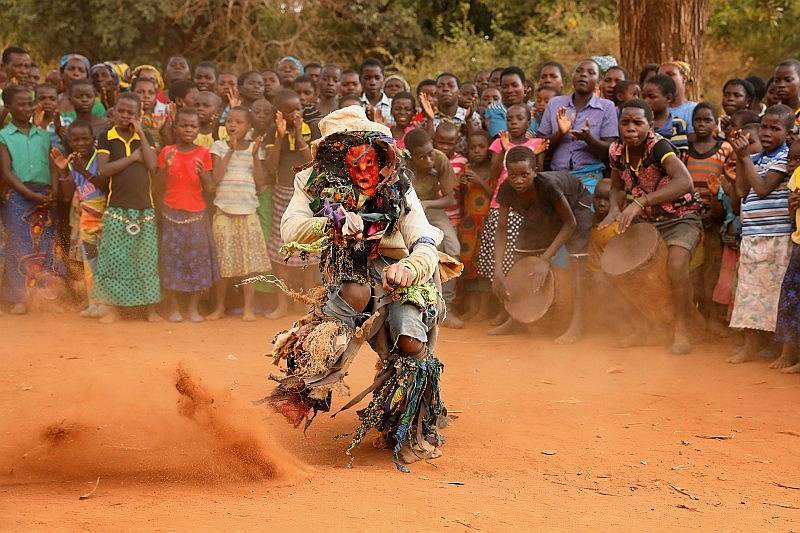
Imagine a land where ancient traditions meet vibrant modernity, where diverse ethnic groups weave a rich tapestry of culture, and where the warm heart of Africa beats strong. You arrive, and the people greet you with a heartfelt, "Welcome to Malawi, takulandirani!" Immediately, you feel an overwhelming rush of warmth, as though you've stepped into your second home away from home. Malawi is a country that captivates your senses and steals your heart.
Malawi's cultural heritage is a fascinating blend of traditional and modern influences. The country's strategic location at the crossroads of Africa has made it a melting pot of different ethnic groups, each with its unique customs, languages, and traditions. Many of these practices are influenced by neighboring countries, with migrations into the land beginning as early as the 1400s. As a result, Malawi is a true fusion of cultures.
The Ethnic Groups of Malawi
Malawi is home to over 20 ethnic groups, each contributing its distinct culture and traditions. Some of the most prominent groups include the Chewa, Nyanja, Tumbuka, Yao, Lhomwe, Sena, Tonga, and Ngoni.
The Chewa people are the largest ethnic group in Malawi, making up about a third of the population. They are known for their vibrant cultural practices, including the famous Gule Wamkulu mask dance, which has been recognized as a UNESCO Masterpiece of the Oral and Intangible Heritage. Performed by the Nyau secret society, this dance features performers dressed in intricate costumes representing animals such as lions and elephants. The dancers move in perfect sync to the rhythm of the drums and music, making the Gule Wamkulu an unforgettable experience.
The Nyanja people, also known as the Mang'anja, primarily reside in the lower Shire River Valley in the southern region of Malawi. They are known for their hardworking nature and traditional practices, such as initiation ceremonies for young men and women. For instance, young men moving into adulthood are expected to build their own houses as a sign of responsibility, while young women are taught household duties to prepare them for future roles as wives and mothers.
The Tumbuka people, concentrated in northern Malawi, are renowned for their skilled craftsmanship, particularly in woodcarving and basketry. They are also known for the Vimbuza healing dance, where a chosen healer dances around a patient, invoking the spirits to bring healing. Women sing and clap in praise of the spirits during this deeply spiritual ritual.
The Yao, who migrated from Mozambique, settled in Malawi's southern region and are famous for their bright, printed cotton kanga cloths, which convey heritage through vibrant patterns. The Yao also practice initiation ceremonies for young men and women, and their language and culture are a source of pride for the community.
Culinary Traditions
Malawian cuisine is a fusion of traditional and modern influences. The central staple is maize, which is used to make nsima, a thick porridge that is often eaten with a variety of relishes, including chambo (fish) and kachumbari (a tomato and onion relish). Other grains such as millet and sorghum are used to create traditional local drinks like thobwa, a sweet beer made from millet or sorghum. This refreshing drink is a favorite and provides energy to help locals get through their day.
Cultural Highlights and Expressions
Malawi’s rich cultural expression is evident in its wood and rock carvings. These intricate carvings are used to create ornamental doors, trays, chairs, ziboliboli (carved wooden dolls), and masks, each telling stories through symbols drawn from animals, proverbs, and myths. Sculpture in wood, stone, and metal across Malawi’s ethnic groups portrays cultural narratives and spiritual themes, delivering messages without words.
Malawi is also home to some of Africa’s most impressive rock art. The Chongoni Rock Art Area, a UNESCO World Heritage Site, features 127,000 ancient paintings that date back to the Stone and Iron Ages. These paintings offer a glimpse into the lives of ancient farming communities and are a testament to Malawi's rich cultural history.
Dedza pottery, known for its stunning handcrafted pieces, is another cultural gem. Made from local clay, this pottery has become a source of employment and a major tourist attraction. The beautifully crafted ceramics, vases, and sculptures are sold both locally and internationally. Additionally, basket weaving, using palm leaves and reed to create mats (mkeka), is another example of traditional craftsmanship seen along the roadsides of Malawi.
Textiles and Clothing
Textiles and clothing are an important aspect of Malawian culture. The Ngoni people, for example, wear vibrant cloths made from leopard skin and fabric prints, which hold cultural significance. The Yao people are known for their brightly printed cotton kanga cloths, which also convey cultural heritage.
The chitenje, a piece of cloth wrapped around a woman from the waist to the ankles, symbolizes respect for and adornment of the female body. In Malawi, husbands often shower their wives with chitenje as a sign of affection, making it one of the most cherished garments for women in the country. Traditional attire worn during ceremonies connects people to their roots and serves as a visual celebration of cultural identity.
Music and Dance
Music and dance are integral to Malawian culture, energizing celebrations and rituals. Parents pass down folktales to their children in song form, and these songs are often sung during daily activities like playing, fetching water, or working in the fields. This oral tradition ensures that Malawi's rich cultural heritage is passed down from generation to generation.
From lively cultural festivals to somber memorial days, Malawi’s diversity brings its people together. The country’s rich cultural heritage is a testament to its resilience, warmth, growth, and adaptability. Whether you’re interested in history, culture, food, music, or dance, Malawi is a destination that will captivate your senses and leave you enchanted.
Don’t just read about it, experience it! Make Malawi your next travel destination. Book your customized cultural tour with Heart Travel and Adventures today.
.JPG)